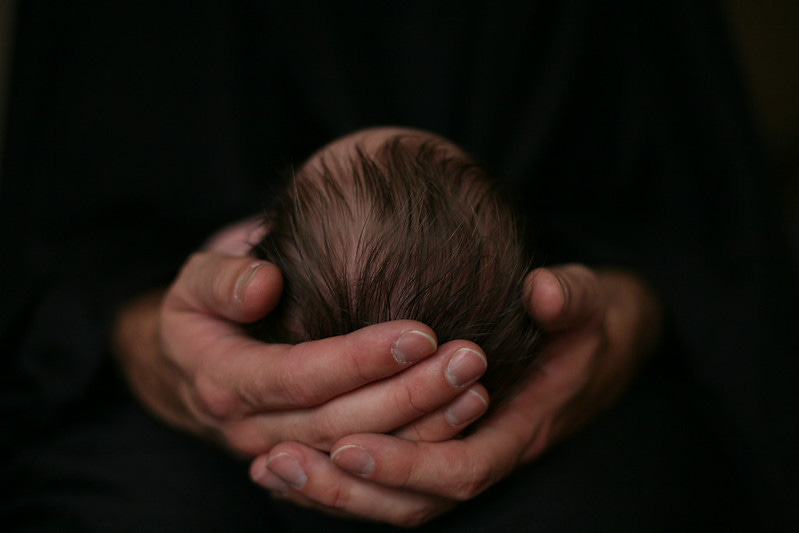Newsom Signs Bills to Ease Barriers to Rural Maternity Care
Licensed midwives and birth centers could support a more flexible, on-call system
Editor’s Note: We changed the term “transfer agreement” below to “transfer policy” after a reader pointed out a legal difference in the meaning of the terms. 10/15/2025
Gov. Gavin Newsom last week signed two bills aimed at removing regulatory barriers to lower-cost, community-based maternity care — a move providers say is especially critical in rural areas where access has dwindled.
Across California, 11 counties have no hospital or birth center, meeting the definition of a “maternity care desert.” Nationally, 36% of U.S. counties fall into that category, according to a 2022 March of Dimes report.
Mendocino County appears relatively better off, with more than two hospitals or birth centers. But for residents on the coast, in Covelo or other remote areas, the nearest hospital with a licensed labor and delivery unit is Adventist Health Ukiah Valley — often more than a hour’s drive. In neighboring Humboldt County, the situation is much the same. St. Joseph Hospital in Eureka is the only facility offering delivery services.
Bethany Sasaki, a nurse practitioner and midwife in Sacramento, said Assembly Bill 55, authored by Assembly member Mia Bonta and co-sponsored by Sen. Mike McGuire, will make it easier to open new birth centers in rural areas. The bill passed the Assembly without opposition and cleared the Senate with only one dissenting vote.
Sasaki said the law eliminates arbitrary rules that made it impossible to license birth centers in rural areas. Previously, birth centers were required to be within 30 minutes of a hospital with an obstetric unit. “That was completely arbitrary,” she said. “It wasn’t based in any science.” The bill replaces the rule with one requiring a written hospital transfer policy agreement.
AB 55 also removes what Sasaki called a “de facto ban” on licensed midwives owning and operating birth centers. Under previous regulations, centers had to meet Medi-Cal’s definition for comprehensive perinatal services — a requirement that excluded many licensed midwives.
Licensing is key for insurance coverage, said Laura Doyle, owner of Moonstone Midwives Birth Center in Arcata. “In California they said you need to be licensed,” Doyle said, “but they have not given out licenses for years. And then insurance companies were saying they’re not going to reimburse you if you’re not licensed.”
The second measure, Senate Bill 669, authored by McGuire, establishes a five-year pilot project to test a more flexible model for rural hospitals that can’t sustain full delivery units. The program allows “standby perinatal medical services,” ensuring emergency readiness and hospital oversight while relaxing rigid staffing requirements.
Senate Bill 669 passed the Senate and Assembly unanimously with no abstentions.
The model was pioneered by Plumas District Hospital, after the hospital suspended labor and delivery services in 2022 due to low birth volume, finances, and staffing shortages. The new approach allows critical-access hospitals, birth centers, and rural health clinics to collaborate on coverage and patient transfers.
Lisa Rawson, a licensed midwife who has attended hundreds of births in Mendocino County, said Adventist Health Ukiah Valley already uses a version of that model. Like the Plumas District Hospital, Adventist Health in Ukiah has a low birth volume. Countywide there were just 769 births in 2023, an average of just over 60 a month.
Adventist Health Ukiah Valley currently maintains a Level II neonatal intensive care unit — the unit can care for moderately ill newborns born after 32 weeks of gestation. Higher-risk infants need to be transferred to Santa Rosa’s Sutter Hospital.
Rawson said both bills make long-needed changes and acknowledge the central role of licensed midwives in rural maternity care.
Doyle agreed, noting Humboldt County’s collaborative system between midwives and OB-GYNs as a model. “We have all these systems in place so we have really great, safe outcomes,” she said.
Newsom also signed two other midwife related bills: SB 520 creates a California Nurse-Midwifery Education Fund within the Department of Health Care Access and Information for the purpose of establishing California-based, master’s level, nurse-midwifery education programs within the California State University, the University of California, or both; and AB 836, which commissions a statewide study on midwife education.




Fantastically depth full reporting.